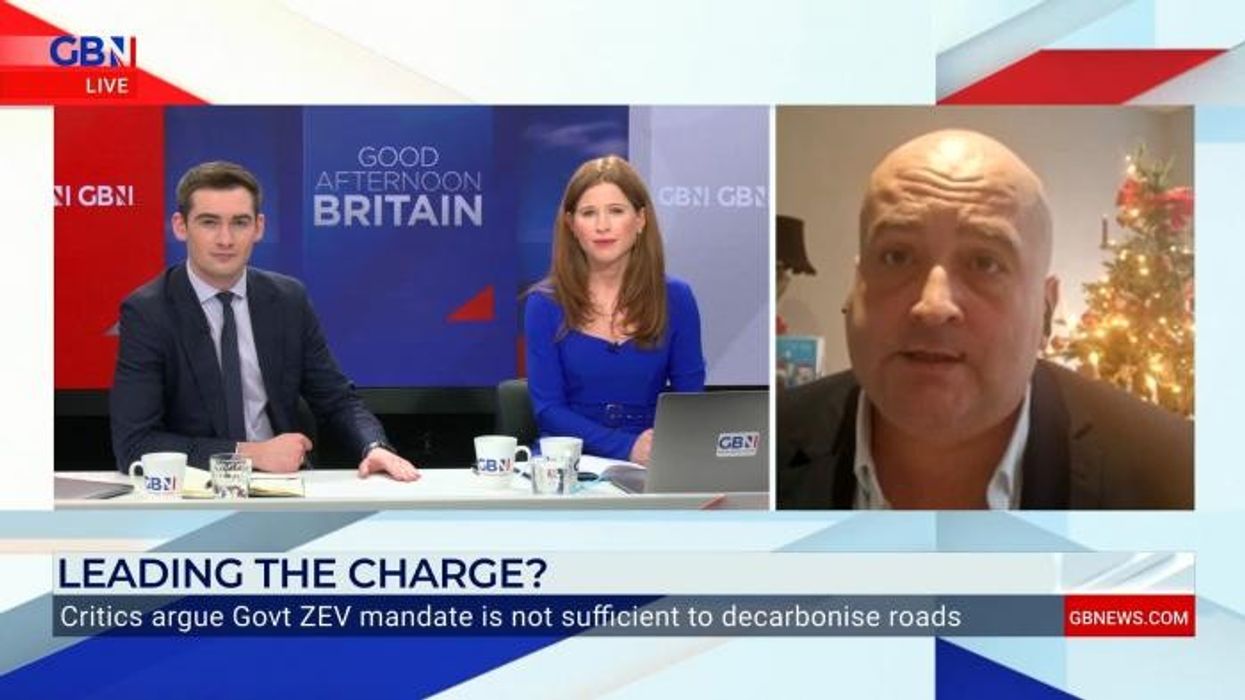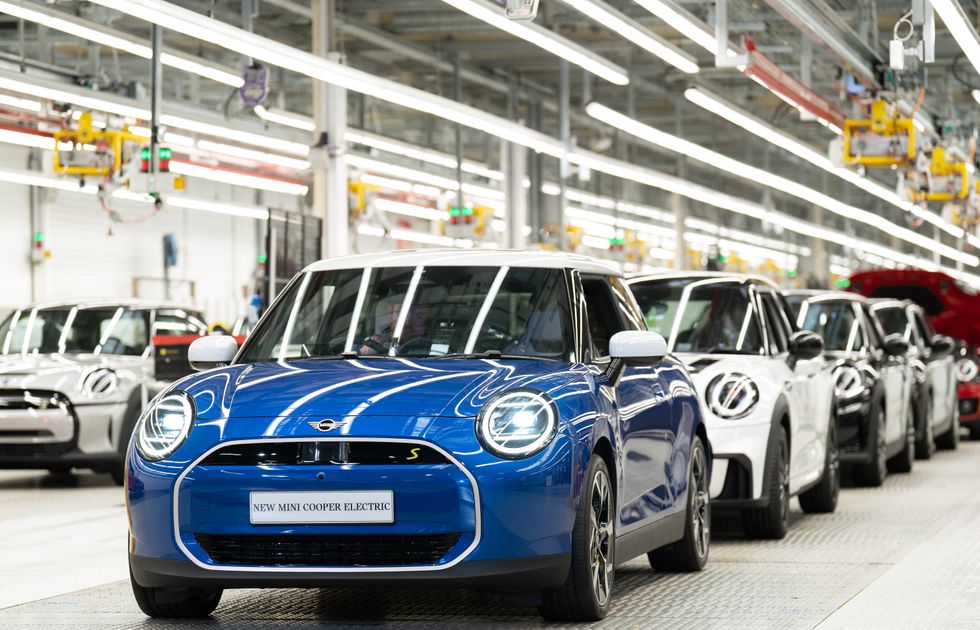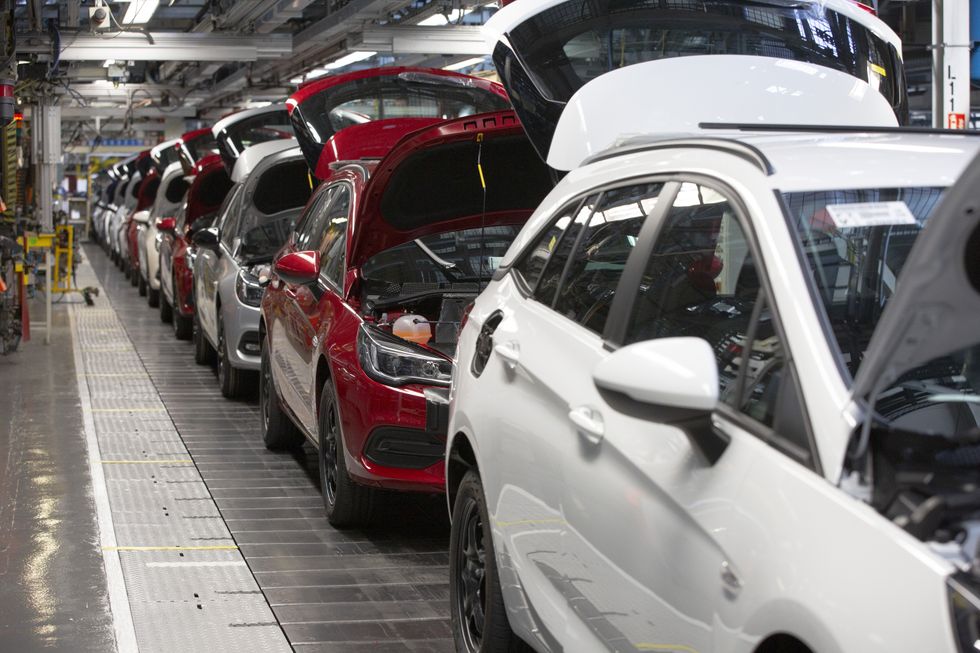Rachel Reeves risks 'destablising' UK car sector as Autumn Budget changes could impact thousands

WATCH: Danny Kelly hits out at ZEV mandate - 'It's bad for the consumer'
|GB NEWS

Experts have urged the Chancellor not to introduce changes to the ZEV mandate at the Autumn Budget
Don't Miss
Most Read
Chancellor Rachel Reeves has been urged not to introduce any changes to the Zero Emission Vehicle mandate at the upcoming Autumn Budget, as it could significantly disrupt the UK car manufacturing sector.
Emily Sawicz, associate director and Industrials senior analyst at RSM UK, warned that "any changes to the ZEV mandate or energy cost relief schemes could have a major impact on the industry" as manufacturers navigate a challenging transition period.
The warning comes as the UK car sector prepares for the Autumn Budget later this year, with concerns that policy shifts announced by the Chancellor might destabilise an industry already grappling with profitability pressures from electric vehicle production.
Ms Sawicz stressed that "stability in policy, targeted investment, and continued relief on energy costs will be essential", noting that "any sudden changes risk rocking the boat at a crucial stage for the UK's automotive manufacturing sector".
Do you have a story you'd like to share? Get in touch by emailing motoring@gbnews.uk

Rachel Reeves will deliver the Autumn Budget in October this year
|PA/GETTY
It also follows the latest figures from the Society of Motor Manufacturers and Traders (SMMT), which revealed a mixed performance across the UK’s car sector in July, with passenger car production increasing while overall output declined.
Car manufacturing grew by 5.6 per cent to 69,127 units, marking the second consecutive monthly increase. However, commercial vehicle production plummeted by 81.1 per cent, pulling total vehicle output down by 10.8 per cent to 72,006 units.
The sharp drop in commercial vehicle manufacturing reflected ongoing plant restructuring and comparisons with an exceptionally strong July 2024, when the sector achieved its best performance for that month in 17 years.
However, year-to-date figures have shown that total vehicle production has decreased by 11.7 per cent, with just under 490,000 units manufactured across all categories.

The Chancellor has been urged not to introduce changes to the ZEV mandate at the Autumn Budget
| PAExport performance varied significantly across key markets, with shipments to the US climbing 6.8 per cent to nearly 10,000 vehicles, reversing three months of consecutive decline.
The European Union continued as the primary destination for British-built cars, accounting for 45.6 per cent of exports, while the US represented 18.1 per cent of overseas sales.
Deliveries to EU nations dropped 7.9 per cent, with China also recording a 7.1 per cent decrease. Turkey and Japan bucked this trend, posting substantial gains of 35.4 per cent and 14.9 per cent, respectively.
SMMT Chief Executive Mike Hawes acknowledged the sector faces "a turbulent time" with "consumer confidence weak, trade flows volatile and massive investment in new technologies underway both here and abroad."
LATEST DEVELOPMENTS:
- Millions of drivers unaware of little-known number plate meaning as major changes launch within days
- Motorway drivers slapped with fines as police admit they are 'pleased to see these people prosecuted'
- Electric car prices slashed with long-awaited rollout of £3,750 discount on popular Ford models - full list
Manufacturing forecasts now suggest that UK vehicle production could expand by 4.4 per cent in 2026, substantially exceeding the European Union's projected 2.7 per cent growth rate.
Meanwhile, independent analysis has anticipated that light vehicle output will reach 803,000 units next year, signalling recovery from the current transitional phase affecting the sector.
The ZEV mandate, which requires all car sales to be electric by 2035, continues to push carmakers to build EVs.
However, manufacturers face sustained margin pressures from heavy discounting required to stimulate consumer demand.

The SMMT revealed that commercial vehicle production plummeted by 81.1 per cent
| GETTYMs Sawicz highlighted: "Manufacturers are heavily reliant on discounts to stimulate sales, which raises concerns about long-term margins."
The UK’s automotive industry contributes £93billion in turnover and £22billion in value added to the economy, employing 198,000 people directly in manufacturing and 813,000 across the wider sector.
Experts have warned that any changes to the ZEV mandate could disrupt the progress made by manufacturers in meeting the ambitious targets, potentially causing job uncertainty.
Mr Hawes added: "To unlock sustained growth, however, Government strategies must become tangible actions as a thriving automotive sector can support well-paid jobs and economic development across the UK."










